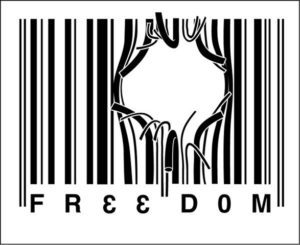Thinking differently about your work means thinking about different kinds of work.
We all know what we’ll to be doing today. But where are the people passing us on the street going to work, and what will they be doing when they get there? Wondering about it, talking about it with some of those people, maybe even tagging along with them for a day can blow out the walls when thinking about what you should be doing with your own work life.

Unfortunately, our “wondering” tends to be pretty timid. That’s because our focus usually gravitates to people who look a lot like us (are they more successful, making more money?), or who seem higher up the ladder (are their lives easier and more satisfying than mine is?). But what about looking less timidly, so that it’s not simply confirming what you already know, but about building your thinking around entirely different foundations?
I heard Charles Alan Murray speak at Bryn Mawr the other night. Among other things, he illustrated how the bubbles we inhabit with all our preconceptions are fortified by the ways we live.
In many of our neighborhoods, nearly everyone is, for all intents and purposes, the same. The education we’ve had. The cars we drive and stores we shop in. The TV shows we all watch (or don’t watch). The sameness of our surroundings bolsters the image we have of ourselves. But it can be pretty thin gruel after awhile.Aren’t we confident enough to open the windows around our certainties, allowing our lives to be enriched by what can be learned by living and thinking a little differently?
Murray talked about looking, years ago, for a place to locate his young family around his research job as a political scientist in Washington D.C. The usual suspects were the affluent, inner ring suburbs like MacLean Virginia, where the well educated and upwardly mobile were looking for “good schools” and a mirror of their hoped-for success. Murray made a conscious choice to look elsewhere, choosing a small town of a couple of hundred people in rural Frederick County. He did so because he wanted to school his children around people who worked with their hands, ran small stores, didn’t have degrees from Harvard and MIT like he did. “More enriching for me and for them,” he said.
Murray was also scrambling the expectations others had about him.
Earlier in my career I helped run a civic organization with a board that was up to its neck in prominent Philadelphians. I got to know many of them well, and thought they were learning something about me too. They knew I lived with my own young family in the City, but despite telling them that our home was in East Falls (a part of town with a near-perfect slice of Philadelphia’s demographic, from projects on up), none of them could accommodate that I lived anywhere other than the one or two City neighborhoods they knew best. So wedded were they to where “I belonged,” I just stopped correcting them after awhile.
The prison I’m talking about is one that you, as well as others, busily maintain for you.
I recently had a candid conversation about this kind of straightjacketed thinking with Timothy Rub, 2½ years in as director of the Philadelphia Museum of Art. As he’s discussed elsewhere, the museum director’s challenge is to bring the past into “fruitful conversation” with the present so that it’s possible to imagine different futures. In this, a great museum’s “present purpose” is to be “the foundation stone, indeed the catalyst for innovation and creativity” in the community. But in this (as in so much else), it comes down to the people involved: to his stewardship and to those who hold that trust with him. How, he wondered, can we breathe new possibility into great institutions when so many of our stewards seem unwilling to think differently?

There’s little to be lost, and the promise of a better world gained, when you re-open basic questions you thought you’d answered—once and for all—a long time ago.
Broadening your base of operations can support better work, a richer life, and more consequential futures.
It’s time to start thinking outside your box.







